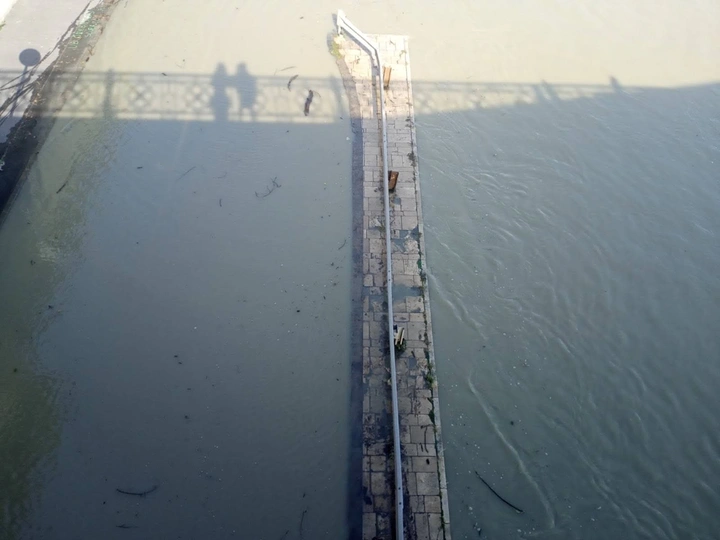You are the flood

Kitti Baracsi works at the intersection of art, critical pedagogy and urban research, realising collective and multimodal artistic creations. She is a Lisbon-based Hungarian critical educator, researcher and curator of community initiatives and cultural interventions, addressing urban inequalities and collective practices, as well as rethinking knowledge production. She participates in various artistic and artivist collectives. Since 2006, she has been involved in education and community work and in research on education, housing, gender and migration in Hungary, Italy, Portugal and Spain. Based in Lisbon, she collaborates with movements, schools, associations, cultural institutions and universities across Europe. She has a background in Communication Science, Aesthetics and Pedagogy. Co-founder of the Criar Cidade Cooperative in Lisbon, as well as several other collectives. Senior Atlantic Fellow for Social and Economic Equity (LSE Inequalities) and associated researcher at the Center for Research in Anthropology (CRIA). Through the project periferias dibujadas, she works on urban conflicts through collective research and art, centering the voices of children.
‘periferias dibujadas’, is an ‘improbable international observatory’ of urban transformations and conflicts, as well as a space to document and reflect on ways of creating spaces for and with children or in intergenerational groups to research, narrate, and intervene in their urban context through art.
The RiVER project has been selected to be part of the In Situ platfom for art in public space - a programme for emerging artists. As part of the research/experimental phase, an ecopoetic glossary on urban hospitality (Slash platform) has already been published.
The itinerant project Ri-Ver: another look at the city, is a nature-centered ar observatory of urban transformations in constant collective creation of a multimodal glossary. Ri/VER refers to ‘river’, but also stands for re-ver, i.e. revise, see again, see from a different angle. Thinking through the river shifts the anthropocentric and short-term focused understandings, thus we can move stagnant conversations and understand the conflictive transformations in our cities and world. How do the emotional, political, economic and social landscapes change if we locate the river in the centre of them?
“You are the flood” is both an invitation to think about that the flood is not really the water but ourselves and the cities and lifestyles we build, but also an exercise to think of ourselves as bodies of water (Neimanis). Those who participate in the creative dialogues, workshops and public space interventions, impersonate the river to imagine possible presents and futures. They share their experiences about the river(s), but most importantly, they imagine they are the river. Through physical, hybrid or digital spaces, the project co-creates a glossary of the city and public space ‘seen by the river’. It experiments with different subjectivities and creates interpretations that don't separate nature and human beings on a conceptual level, enabled by the imagination that takes shape in a multimodal, beyond textual glossary, a tool for collective creation and experimentation.
The glossary is created and activated through imaginative and situated public space interventions, in the participants’ local context and in their outreach, while embedded and reflecting on global dynamics. It consists of words, images, videos, sounds, and performative acts that emerge during the co-creation in the form of workshops or creative dialogues, with artists, urban researchers and ‘inhabitants’ of various kinds, including various age groups with a special attention to children.